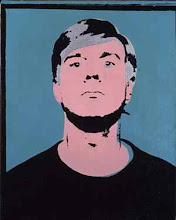Category awards are made for Spot News, General News, People in the News, Sports, Contemporary Issues, Daily Life, Portraits, Arts & Entertainment, and Nature and include some astonishing and horrifying pictures. See the World Press Photo: Winners Gallery.
I was particularly interested in the Contemporary Issues, 'Honourable Mention' to Michael Wolf for: A Series of Unfortunate Events: Google Street View.
Wolf has produced a substantial body of work derived from the vast image bank produced by the Google Street View project. In an interview in the British Journal of Photography, Wolf explains his method:
I use a tripod and mount the camera, photographing a virtual reality that I see on the screen. It's a real file that I have, I'm not taking a screenshot. I move the camera forward and backward in order to make an exact crop, and that's what makes it my picture. It doesn't belong to Google, because I'm interpreting Google; I'm appropriating Google. If you look at the history of art, there's a long history of appropriation. He speculates: I think a large part of our future will be the curating of all these images. Can you imagine the number of images stored in our world today? It's unlimited. In 100 years, there will be professions such as 'hard-drive miners', whose mission will be finding hard-drives in electronic junkyards and developing software to sort these images. And then there will be art projects and sociological projects created using images mined from electronic storages. The whole idea of curating this incredible mass of images that has been created has tremendous potential, and I've just scratch[ed] the surface with my Google Street View project.
Needless, to say there is some scepticism about the validity of his work as 'photojournalism' or even 'art' - see comments posted at the end of the BJP interview. Listen to Wolf talking about his response to the 'controversy' and his work.
Michael Wolf, selected images from A Series of Unfortunate Events: Google Street View






Love what you're doing here guys, keep it up!..
ReplyDeleteviral photos with quotes